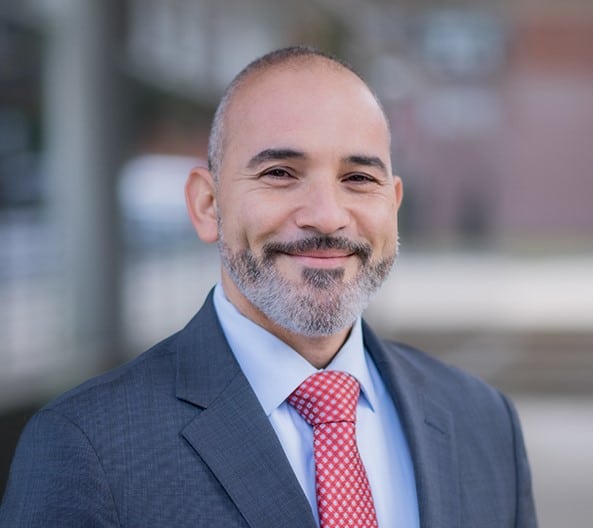
To find the best financial advisor for you, it’s important to ask the right questions. Learn what to ask before hiring a financial advisor.
There are many reasons to consider hiring a financial advisor. Whether you’re unsure what to do with your own investment portfolio or you’re looking for advice on how to save for a comfortable retirement, hiring a financial advisor may help you sleep easier at night.
To find the right financial advisor for you, it’s important to interview multiple financial advisors and ask the right questions, especially if it’s your first meeting. Here are the top questions you should ask before picking a financial advisor.
Table of Contents – Why You Should Ask These Questions First
- Will You Put My Interests First?
- How Do You Get Paid?
- What Services Do You Provide?
- What Is Your Investment Philosophy?
- What Experience Do You Have?
- Choose An Advisor Who Aligns With Your Needs and Values
- Find Your Next Financial Advisor on Wealthtender
- Personal Finance Educators Chime In: More Questions to Ask an Advisor
Will You Put My Interests First?
If a financial advisor is a fiduciary, then they adhere to standards to work in your best interest. For example, financial advisors who have earned the Certified Financial Planner (CFP) designation agree to always act in their client’s best interests.
The term fiduciary is often used on websites, but what does it mean, and how can you be sure that the advisor is adhering to the standards of a fiduciary? The fiduciary standard expressly states that advisors who uphold it are required by law to put the needs of their clients first.
Ryan Firth, the founder of Mercer Street Financial, says you should ask direct questions about the priorities of an advisor, such as:
- Will you and your firm always act in my best interest? If so, how?
- Give me an example or two of how you put your client’s interests ahead of your own?
- In plain English, how do you mitigate potential conflicts of interest between what’s best for your clients and what’s best for you or your firm?
Another role of a fiduciary is to limit or be transparent about any conflicts of interest that may arise. A fiduciary is essential because conflicts of interest may affect the quality of work the advisor can provide and create unnecessary stress.
So how do you make sure you choose a fiduciary who will put your needs first and uphold the standards required of them? You can use the Broker Check feature on the FINRA site to check the advisor’s background you are considering or choose an advisor who has earned their CFP designation.
“In order to be a true fiduciary, the advisor’s compensation should not be directly tied to the recommendation,” said Sean Polley, Private Wealth Manager and CEO of Polley Wealth Management. “For example, if the advisor’s recommendation includes moving your assets to the advisor, then the advisor’s compensation is tied to the recommendation. Therefore, a separate fee for advice, not tied to assets under management or commissions, will determine if the advice is true fiduciary advice.”
How Do You Get Paid?
Advisor fees and compensation can be a frustrating grey area if you are not careful. A lot of financial advisors do not disclose their fees on their websites. There are many ways that financial advisors are paid, and they should be honest about those fees and what you will need to pay.
“There is no fee model that is universally the best fit for all people in all circumstances, and claims to the contrary are obviously silly or even self-serving,” said Daniel M. Yerger, President at MY Wealth Planners and a doctoral researcher at Kansas State University who specializes in compensation research.
“Some people want a check-up plan to ensure they’re going in the right direction. Some people want to wholesale delegate their finances to a professional. Others want ongoing guidance but want to stay hands-on. The best fee model for any individual is the one that aligns their advisor’s interests with the services that the person feels they need for their financial planning needs,” said Yerger.
Here are a few different ways a financial advisor can be compensated.
Fixed Fees
A fixed (or flat) fee is a previously specified price for a particular service. For example, a financial advisor might charge $3,000 for the one-time creation of a financial plan.
Hourly Rate
An hourly rate is a straightforward fee that outlines the hourly pay for the financial advisor.
Assets Under Management
Advisors who charge this annual fee will take a percentage of your investments. An AUM fee is charged as advisors are compensated for managing their clients’ investments.
Commissions
Financial advisors may receive commissions for products they recommend to you, such as mutual funds and annuities. Make sure your advisor is transparent with you about which of the products they are advertising are commission-based.
Advisors may also use a different fee structure depending on what services are provided.
What Services Do You Provide?
Before you decide to hire, it’s essential to understand what specific services you need to be performed.
You don’t want to waste your time with someone who is not an expert in the service you are looking for.
Stephanie McCullough, Founder & CEO of Sofia Financial, encourages people to ask an advisor about their expertise. “The most crucial question to ask an advisor is whether they offer the service you need,” McCullough said. “If you need investment management, cash flow strategies, or retirement savings planning, be sure you’re talking to advisors who specialize in those services.”
Financial advisors usually offer a wide variety of services. These services often include:
- Education savings
- Tax mitigation opportunities
- Cash flow strategies
- Charitable giving
- Retirement planning
- Business succession options
- Insurance protection
- Trust and estate planning
- Comprehensive wealth management services
- Portfolio management
Choose someone who will be able to meet your current and future needs, as your finances will likely evolve throughout your life.
What Is Your Investment Philosophy?
A good financial advisor will dig deep into your investment needs (and ask you questions) before recommending any products or services to you.
You want an advisor who makes an effort to understand the full scope of your needs and who will align themselves with your goals. Their investment advice should mirror this philosophy as well.
Ask your advisor if they prefer one specific investment style or one type of investment. The ideal advisor should not take a one size fits all approach, as some investment styles may work well for some individuals but not so well for others.
What Experience Do You Have?
There are pros and cons to working with financial advisors who are new in the field. They are likely to be more excited about their work and more dedicated. They may also have the resources of a well-established firm to back them, which could work well for you.
However, they have not been tested yet, and if they don’t have prior advising experience, it may be better to seek out someone more seasoned in the field.
Always look at an advisor’s career history to see if they have other finance-related experience or professional certifications that will benefit you.
Expert Voices: More Questions to Ask
We asked financial professionals in the Wealthtender community for questions they recommend people ask when hiring a financial advisor. Here’s what they said.
“My favorite question is, ‘Do you help people like me?’” said Rebecca J. Conner, CFP and Founder of SeedSafe Financial. “It’s so important to find an advisor that meets your expectations in knowledge, skill, interests, etc., and often this can be learned from their response to this question,” she said. “I love this question because it will help each of us better communicate and ensure we understand what is most important in the relationship.”
“My favorite question is, ‘Why do you like to do things differently than other advisors?’” said Blaine Thiederman, CFP. “We customize your financial plan, so there’s no one-size-fits-all for every client. This might mean your first priority will be to get a raise (if you’re underpaid), increase your saving for retirement, set up a cash balance pension plan for your company, improve how you invest, improve your tax plan to lower your future tax bill, or so on. The point is, you’ll understand with absolute confidence why we’re recommending what we are and why it should be prioritized first.”
Choose An Advisor Who Aligns With Your Needs and Values
There are many different factors to consider when choosing a financial advisor. Make your selection with your needs and values at the forefront of the decision-making process.
Seek an advisor who will be transparent about what they will offer you and someone who will be collaborative and put your needs and interests first. It is crucial to find a financial advisor who will build personalized strategies for you as your finances evolve over your lifetime.
Find Your Next Financial Advisor on Wealthtender
📍 Click on a pin in the map view below for a preview of financial advisors who can help you reach your money goals with a personalized plan. Or choose the grid view to search our directory of financial advisors with additional filtering options.
📍Double-click or pinch pins to view more.
Additional Questions to Ask a Financial Advisor
In addition to the questions suggested in this article, here are several more questions you may want to ask a financial advisor in your first meeting to get a conversation started.
Can I read reviews from your clients?
Until recently, financial advisors were not allowed to ask their clients to write a review about them due to regulations from the Securities and Exchange Commission (SEC). However, this prohibition has been removed to encourage advisors to ask their clients for reviews so people interested in hiring them can make a more informed decision.
Wealthtender is the first financial advisor review platform designed for compliance with the new SEC rule. You’ll find an increasing number of financial advisors on Wealthtender with reviews in the future to help you research advisors to decide if they are a good fit to work with you. You can view examples on this page.
Do you focus on a particular area of specialization?
Many financial advisors today specialize in serving clients who share common interests. For example, you’ll find advisors who focus on helping people in the same occupation, who share the same religion or family priorities.
Wealthtender is the first website designed to help people discover financial advisors who specialize in a particular niche. Visit this page to find a financial advisor based on what’s most important to you.
Can you work with me remotely?
Most financial advisors today can work with you online, meeting with you over Zoom or other videoconferencing services. This means you can prioritize finding the best financial advisor for your unique circumstances, even if they live hundreds of miles away.
In the Wealthtender Guide to Virtual Financial Advisors, you’re likely to find several financial advisors who may be well suited to helping you achieve your financial goals.
Even More Questions to Ask a Financial Advisor
Consider these additional questions to ask a financial advisor based on your unique circumstances and priorities.
Asking a Financial Advisor About Their Experience and Credentials
- What professional experience do you have?
- How long have you been a financial advisor?
- What professional credentials do you hold?
- Why do you love your job?
- Have you ever been disciplined for any unethical behavior?
- What sets you apart from other advisors
Asking a Financial Advisor About Their Services
- What services do you provide?
- How often will I hear from you?
- Will you create a financial plan for me?
- What is included in your financial planning services?
- Will we meet in person or online?
- Will we work together to implement your recommendations, or am I on my own?
- Are you a fiduciary?
- How many more years do you plan to work as a financial advisor?
- Why did you decide to become a financial advisor?
- What types of clients do you work with?
- Can I read reviews from your past or current clients?
- Will you work with my accountant and other professionals?
- Will I only be working with you or others?
Asking a Financial Advisor About Products They Offer
- What products do you offer?
- Why do you choose to offer these products?
- What is your affiliation with these products and their issuers?
- Are you compensated by product issuers?
- What products do you not offer, and why not?
Asking a Financial Advisor About Their Areas of Specialization
- Do you specialize in any particular areas?
- What specialist designations or credentials have you earned?
Asking a Financial Advisor About Their Cost
- What is the cost of working with you?
- What pricing options do you offer?
- How did you come up with your pricing model?
- As my assets grow with you, will I receive a discount?
Asking a Financial Advisor How They Will Invest Your Money
- How will you invest my money?
- How will you allocate my portfolio?
- Do you invest in passive funds or actively managed funds?
- What types of investments do you use? Mutual funds? ETFs? Individual stocks and bonds?
- Do you invest in alternative asset classes? Which ones?
- How frequently will you reallocate my holdings? Do you consider yourself a buy-and-hold investor or market timer?
- Do you currently believe the markets are overvalued or undervalued? Why?
- How will you manage my investments for tax considerations?
- How will you mitigate my downside risk?
Asking a Financial Advisor Where Your Money Will be Kept
- Where will my assets be custodied?
- How do you keep my money safe?
- If I need quick access to my money, what is the process to request a withdrawal?
- What happens to my money if you pass away or go out of business?
Asking a Financial Advisor About Their Current and Past Clients
- How many clients do you currently have?
- What is your ideal number of clients?
- What is the average length of time you’ve worked with clients?
- Where can I read reviews from your current or past clients?
- Can you tell me about a recent client who left and why?

About the Author
Max Marvelous
As a Certified Credit Counselor, Max has coached over 250 Millennials to help take the stress out of money. After coaching, his clients live stress-free about money and have a simple plan they can follow to accomplish their goals. When Max is not coaching, you’ll find him reading financial books, indoor cycling, or visiting local pawn shops looking for swiss-made watches. Website
Personal Finance Educators Chime In: More Questions to Ask an Advisor
We asked personal finance educators in the Wealthtender community for questions they recommend people ask when hiring a financial advisor. Here’s what they said.
Are you ready to enjoy life more with less money stress?
Sign up to receive weekly insights from Wealthtender with useful money tips and fresh ideas to help you achieve your financial goals.












































